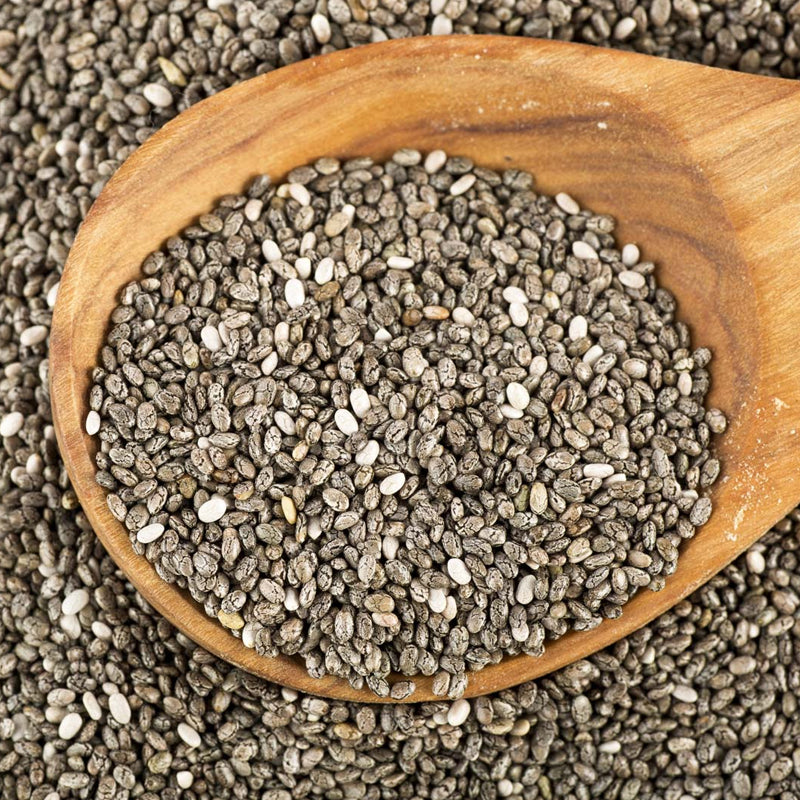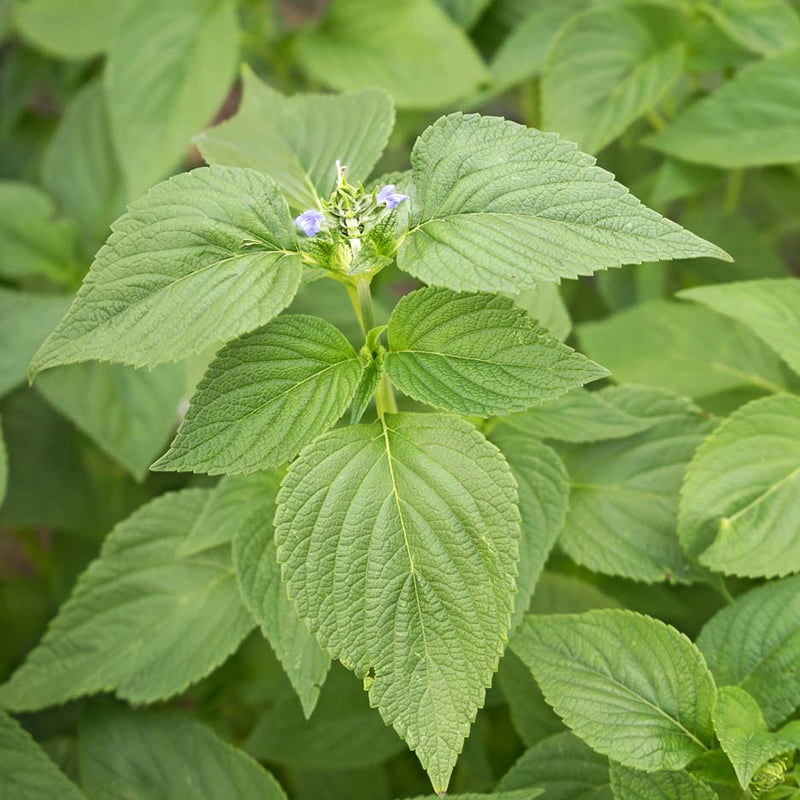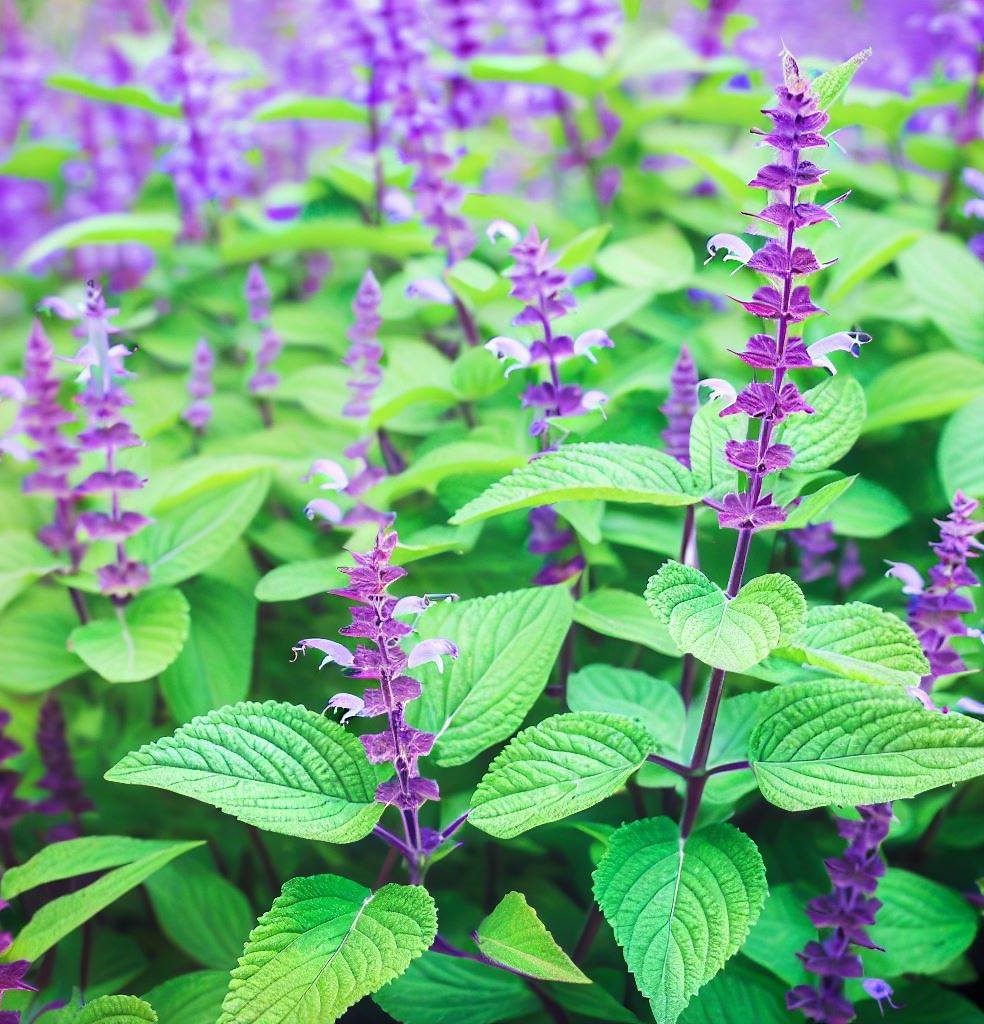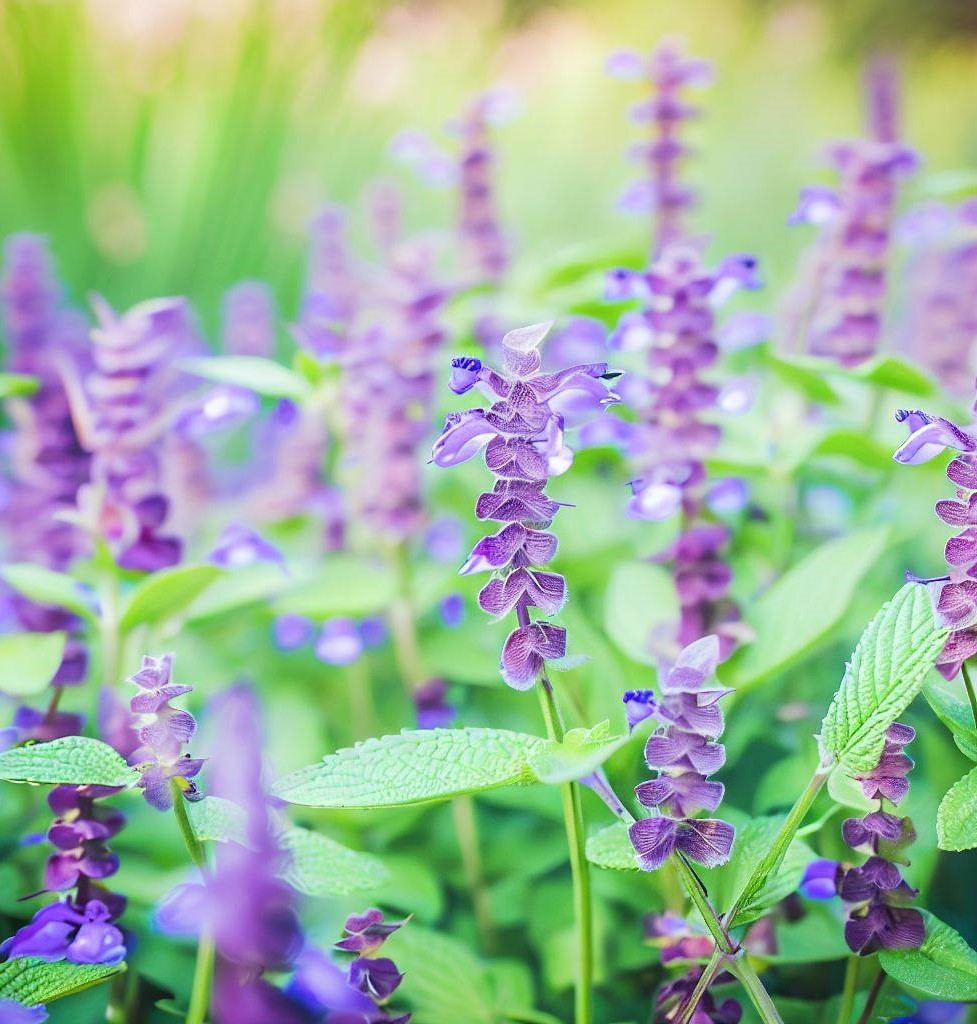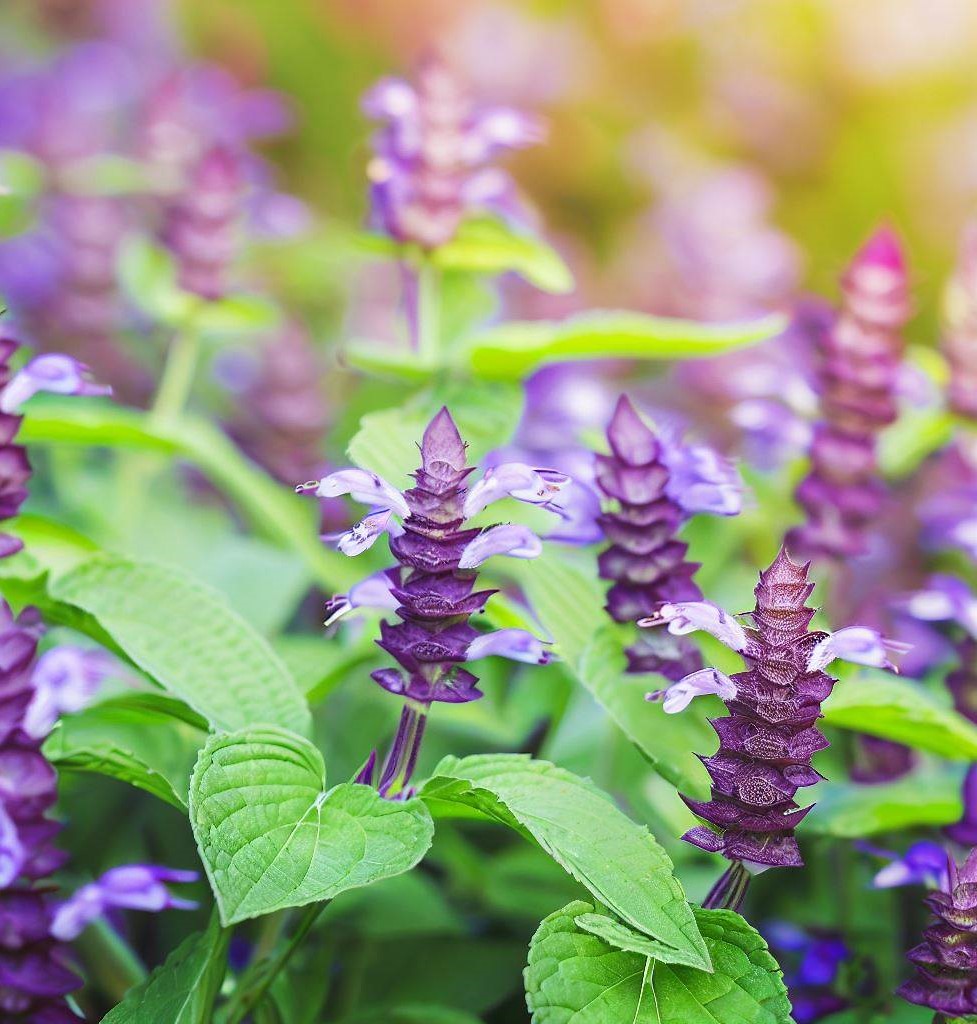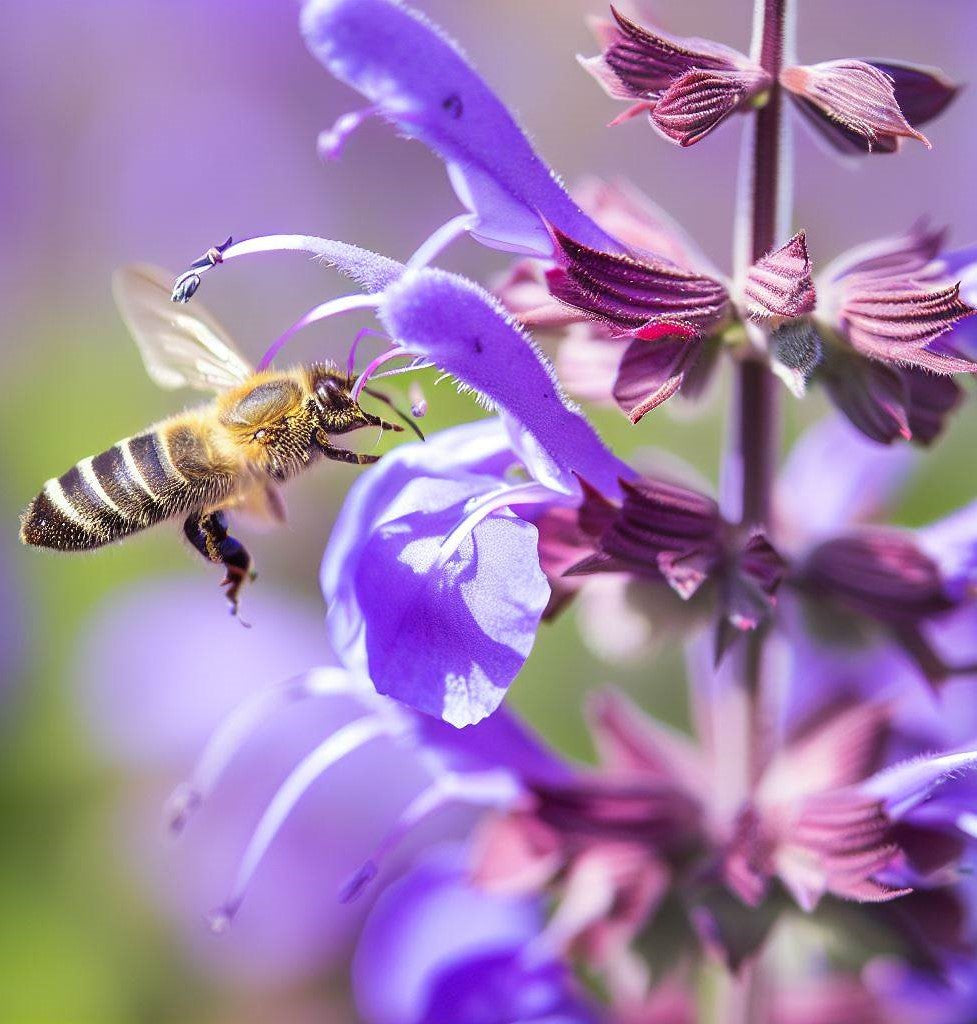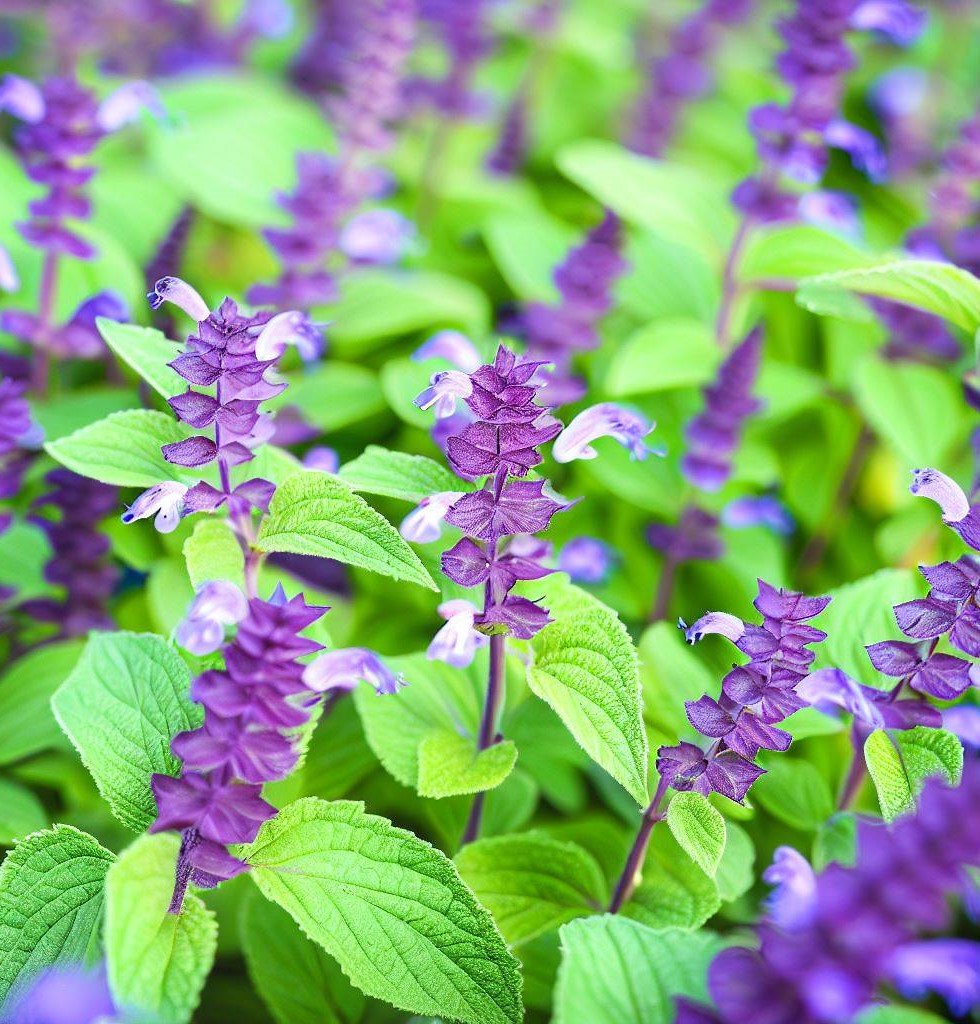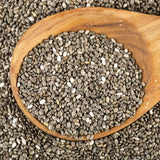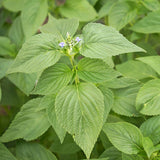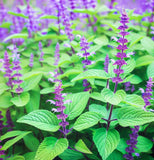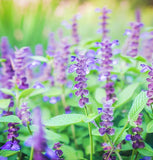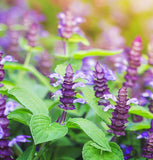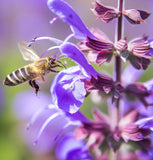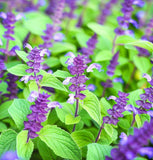Chia (Salvia hispanica)
Chia (Salvia hispanica) is a flowering plant that belongs to the mint family, Lamiaceae. It is native to Central and South America, particularly Mexico and Guatemala. Chia has been cultivated for centuries and is well-known for its edible seeds, which have gained popularity as a health food in recent years.
Appearance: Chia is an annual herb that grows to a height of about 3 to 5 feet (0.9 to 1.5 meters). It has square-shaped stems with opposite pairs of leaves that are green and slightly hairy. The flowers are small and purple or white in color, arranged in spikes at the top of the stems.
Culinary uses: The seeds of the Chia plant are the primary edible part and are highly nutritious. They are small, oval-shaped, and come in various colors, including black, white, and gray. Chia seeds are often added to smoothies, yogurt, oatmeal, and baked goods. When soaked in liquid, they develop a gel-like consistency, which makes them suitable for use as a thickening agent in recipes or as a vegan egg substitute.
Nutritional value: Chia seeds are considered a nutritional powerhouse. They are rich in omega-3 fatty acids, fiber, protein, antioxidants, and various vitamins and minerals, including calcium, magnesium, and phosphorus. Chia seeds are also low in calories and carbohydrates, making them a popular choice for those following a low-carb or ketogenic diet.
Health benefits: Chia seeds have gained popularity due to their potential health benefits. The high fiber content of chia seeds can help promote digestion and may contribute to a feeling of fullness, which could aid in weight management. The omega-3 fatty acids found in chia seeds are beneficial for heart health and can help reduce inflammation in the body. Additionally, chia seeds may help regulate blood sugar levels due to their ability to absorb water and form a gel-like substance in the digestive system.
Cultivation: Chia plants are relatively easy to grow and adapt to a variety of climates. They prefer well-drained soil and full sun to partial shade. Chia seeds can be sown directly into the garden bed or started indoors and transplanted once the danger of frost has passed. They require regular watering, particularly during dry periods. The plants produce flowers and seeds within a few months, typically in late summer or early fall.
It's worth noting that chia seeds can absorb a significant amount of liquid, so it's important to consume them with plenty of fluids to prevent any discomfort. Additionally, individuals with certain medical conditions or those taking medication should consult with a healthcare professional before incorporating chia seeds into their diet.
Overall, chia seeds are a versatile and nutrient-dense food that can be enjoyed in various ways. Their nutritional profile and potential health benefits have contributed to their popularity as a superfood in recent years.
Botanical name : Salvia Hispanica
Common name : Chia
Life cycle : Annual , Tender Perenniaal
Days to maturity: 60-70
Light requirement : Full sun
Planting time: Spring/Summer
Sowing method : Direct sow
Planting depth : ¼”
Plant spacing : 12”- 18”
Ships : Year-round
Average seed per ounce : Approx. 4,500

